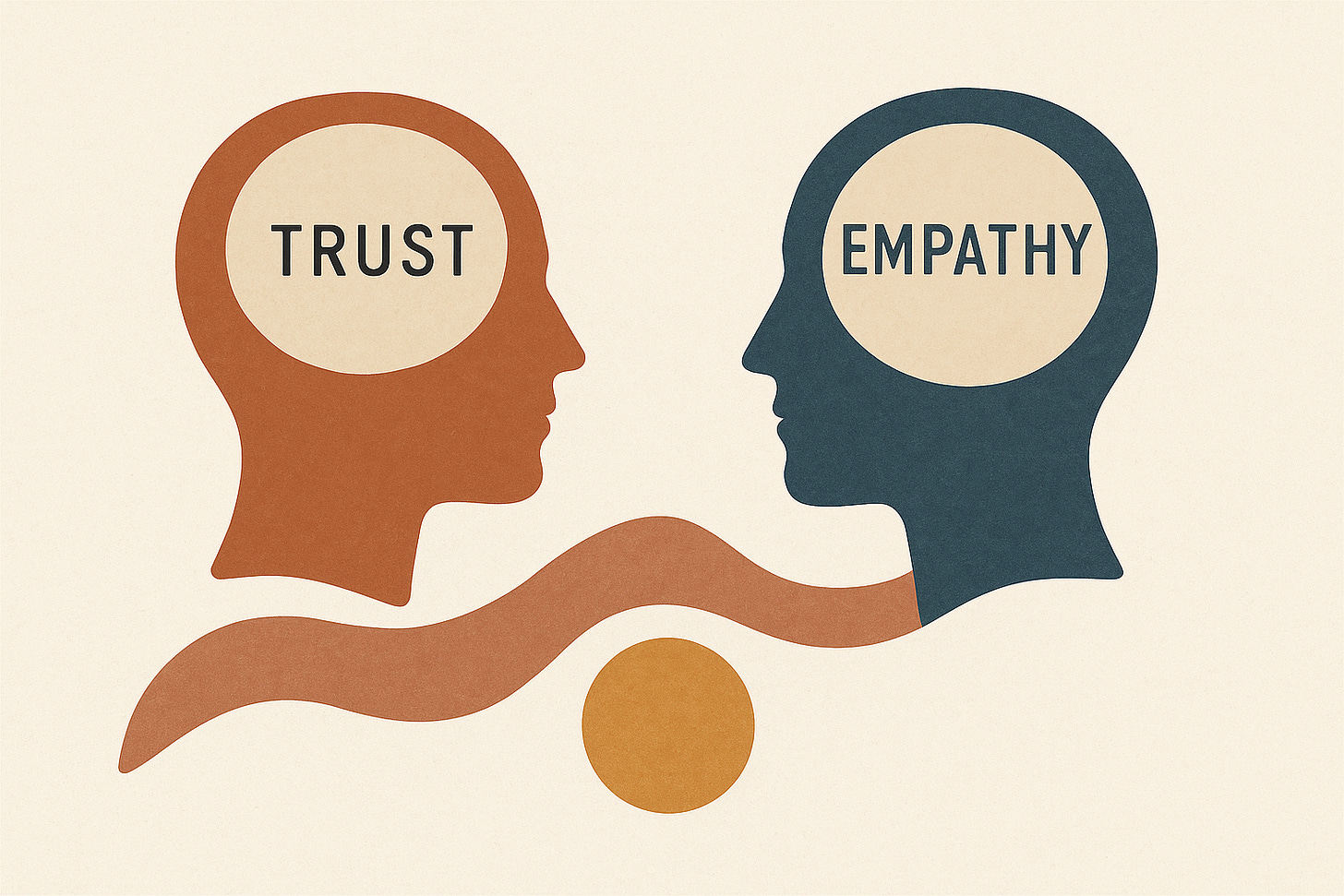Trust and Empathy: The Real Human Currency
The foundation of lasting products, teams, and relationships
“As technology advances and replaces many cognitive skills, the only traits that remain distinctly human are trust and empathy, the foundation for genuine connection.”
Forget funding rounds and market share. If you want to know why some products, companies, or relationships endure, ask a simpler question: Who do people trust?
Trust, along with its quieter companion empathy, is the real currency of human interaction. It governs how we connect, collaborate, and coexist. We don’t talk about it as much because it doesn’t show up on a balance sheet. But if you’ve ever tried to rebuild it after it’s lost, you know how much it's worth.
It’s easy to mistake trust as something that is secondary, something you get once you’ve already succeeded. But the truth is, trust is what leads everything else. It’s what allows teams to move and iterate fast without second-guessing. It’s what makes customers loyal even when you make mistakes. It’s what holds everything together when you can’t.
You don’t build trust by telling people to trust you. You build it by showing them that you get it. That you understand what they’re trying to do, what they’re afraid of, what they’re hoping for. In other words, you build it through empathy.
Design thinking, when done well, is just formalized empathy. It forces you to stop assuming and start observing. Spend time with the user before you spend time in Figma or CAD. Feel their friction before you pitch your feature list. It's about innovating and building to make a persons life better.
Most teams, when starting something new, default to asking, "What should we build?" The better ones ask, "What problem are we solving?" But the best ones ask, "What is this person going through?" Because until you can answer that, you're just guessing. This is Human Centered Design. When a product feels like it was made for you, not just functionally but emotionally, that’s the result of a thousand small acts of empathy. Every choice that is made in a product that benefits the user builds trust and loyalty with them over time.
It doesn’t stop at design. The same principles apply to leadership, customer service, even hiring. A founder who listens more than they speak earns the trust of their team. A support team that solves the real problem, not just the ticket, earns loyalty. A recruiter who actually cares about the person and skills in the company, builds a brand people want to work for.
The funny thing is, the more powerful our tools get, the easier it is to forget all this. Social media algorithms optimize for engagement, not integrity. AI can answer questions but miss frustration. AI deepfakes are becoming increasingly difficult to identify, and can spread misinformation to groups of people that are vulnerable. Smarter tools without empathy don’t feel smarter. They just feel colder.
As technology advances and replaces many cognitive skills, the only traits that remain distinctly human are trust and empathy, the foundation for genuine connection. These become increasingly important in our current social and cultural fabric.
Empathy is slow. It requires patience. But that’s also what makes it durable. Empathy doesn’t wear out when the market dips. Trust doesn’t evaporate when a UI bug slips through. If anything, that’s when they matter most.
So if you’re building something, worry less about scale for a moment and ask instead if you are being trusted and empathetic, because trust and empathy are not just best practices but the foundation of how anything human truly works.


